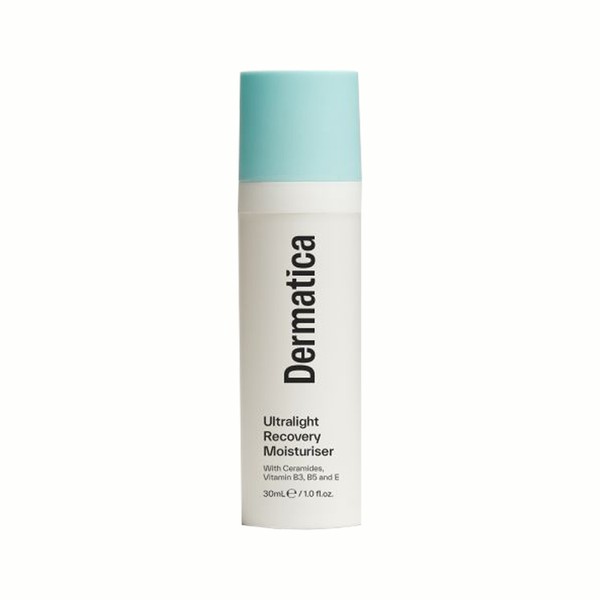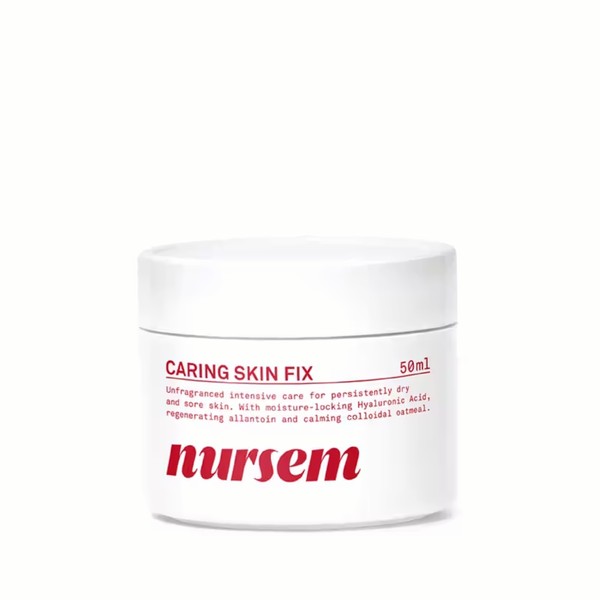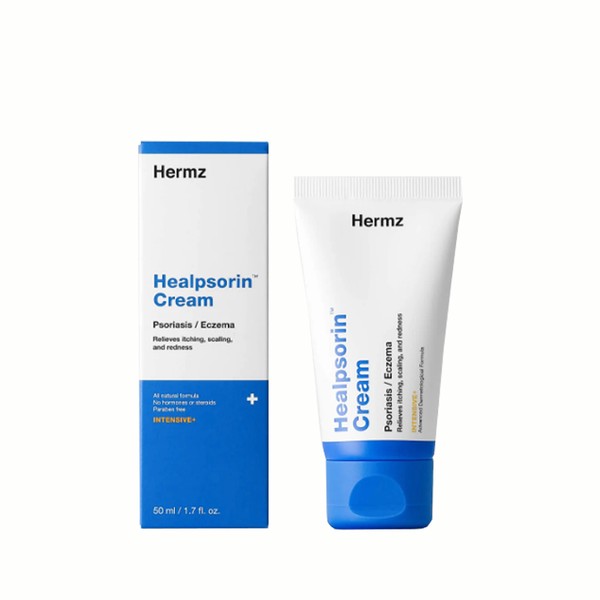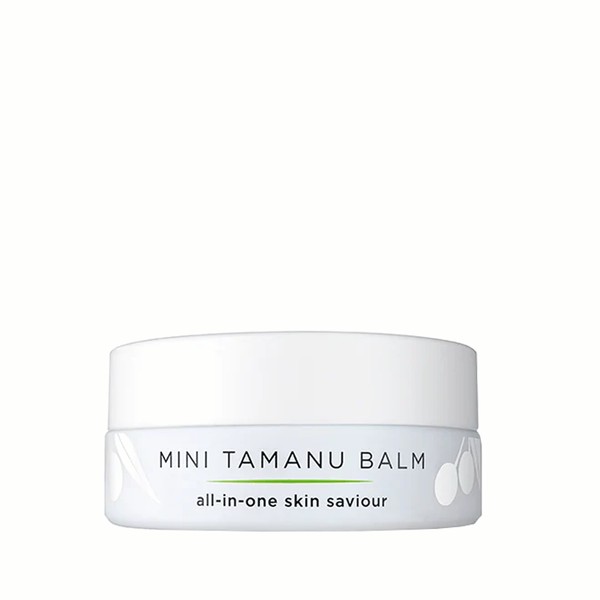Psoriasis 101: What It Is & How To Treat It
It's An Inflammatory Condition
“Psoriasis is a long-term skin condition caused by an autoimmune condition. Not to be confused with eczema, it manifests itself in scaly, dry, inflamed patches which are often covered with a silvery-white coating. These patches can be extremely itchy and uncomfortable, and they can pop up anywhere – typically though, you’ll find them on your scalp, elbows, face, back, stomach and legs. These skin irregularities develop as sufferers’ skin cells multiply ten times faster than normal, which is what causes the lumps and thick patches of skin as immature cells are pushed to the surface.” – Sam Cinkir, founder of Este Medical Group
Our Immune Systems Play A Big Part
“I am often asked what the single cause of psoriasis is, but there are multiple factors at play. Research shows – as mentioned above – that it is caused by an issue within our bodies’ immune systems and our cells. It seems the cells which are designed to fight infection mistakenly begin to attack healthy skin cells and that’s when the thick, lumpy patches of skin form. There is also a strong genetic link – a third of patients with psoriasis have family members with the condition.” – Dev Patel, aesthetic skin doctor & founder of CellDerma
There Are Some Triggers
“Interestingly, some of those predisposed to psoriasis may be symptomless for years. That’s until it’s triggered by one or more environmental factors. Research shows this can include changes in weather or temperature that dry out the skin, as well as skin injuries – think burns, cuts and insect bites. Excess alcohol, smoking, anxiety and stress can also bring the condition out if you’re predisposed, as can some medications and hormonal changes, including puberty, pregnancy and the menopause. It’s also worth noting that ‘guttate psoriasis’ is a specific type that can develop after a streptococcal throat infection – though this is rare.” – Sam
It Can Feel Quite Severe
“Psoriasis can be detected if you see patches that start to look more like ‘plaques’ of thick skin. There are, however, different types of psoriasis, which is what causes such confusion. Itchiness and burning can be mild, but it can also be quite severe – especially on your scalp, palms and soles of the feet – and this is why it differs to eczema. The latter tends to appear in the creases of your joints, whereas psoriasis is more likely to appear on the front of your joints. To differentiate the two conditions further, patches of eczema tend not to be defined like the plaques of psoriasis, nor are they raised. Those who suffer with eczema are more likely to suffer at a very young age, whereas psoriasis sufferers have a peak onset around the age of 15-25 and then 50-60.” – Dev
Keeping A Diary Can Help
“While you can’t get rid of psoriasis, you can treat it and prevent a chronic flare-up by recognising and noting your triggers. Psoriasis is exacerbated when your skin is overly dry, so keeping it moisturised (with fragrance-free creams and emollients) can help soothe inflammation. It may also be worth using a humidifier in your home, to keep moisture in the air and avoid overly dry conditions. It’s easier said than done, but keeping stress and anxiety levels low is also essential. You need to be conscious of your lifestyle to help prevent flare-ups where possible. Some sufferers find sunlight lessens the severity of flare-ups, as the sun’s ultraviolet light slows the growth of skin cells. This is good news, but it goes without saying that you need to use SPF and not overdo your sun exposure.” – Sam
Steroid Creams Should Only Be Used If Necessary
“Steroid creams are effective in reducing inflammation and itching, but I liken these to a fire extinguisher. You don’t want to hesitate to use them when needed but they are best avoided over the long term. For acute flare-ups, I will often recommend a steroid and vitamin D cream then gradually wean my patient off the steroid, keeping them on the vitamin D cream. If you suddenly stop topical steroids, a rebound flare-up can happen, so this transition should always be done under a doctor’s supervision. More severe psoriasis cases may be treated with a UV-A light-based therapy in hospital or oral or injectable drugs which aim to suppress the immune system. In my clinic, we have the Dermalux Triwave MD which is medically approved to treat psoriasis and offers a much safer form of light than UV-A.” – Dev
It May Look Different On The Scalp
“A common location for psoriasis is the scalp and, while it still appears as plaques, it can be even itchier here. If you get flaking of thick skin or you notice red, inflamed patches, always get it checked by a GP. Psoriasis on the scalp can also cause bleeding and a general soreness that won’t clear up by itself.” – Sam
It’s Important To Avoid Certain Ingredients
“If you suffer with psoriasis, only use fragrance-free, dye-free and alcohol-free products. Physical exfoliants and scrubs are also on the banned list as they can further irritate already inflamed, dry skin. The same goes for ingredients like sulphates, so always check the ingredients before you buy something. You want to use hydrating formulas that moisturise and sooth – if in doubt, ask your doctor, or look for brands that design products for sensitive skin types.” – Sam
You Can’t Catch It Or Pass It On
“One of the biggest misconceptions around psoriasis is that it’s contagious – it isn’t. You couldn’t catch dry skin from someone, and this is no different. Unlike viral conditions – like meningitis, influenza and Covid – skin conditions can’t spread as they’re localised. Another misconception is that hot water can ease symptoms. Warm water, yes, hot water no because it can strip the skin of moisture, and leave it feeling even drier and tighter than before.” – Sam
Finally, Medical Advice Is Out There
“If you have psoriasis symptoms, speak to a GP – especially if you have a rash that’s not resolved within six weeks. You will need the right advice and psychological support as it can be a stressful condition to deal with. Given psoriasis is a risk factor for some other health concerns – including cardiovascular and inflammatory bowel disease – it’s also crucial to get the right diagnosis and plan of action. Finally, check out The Psoriasis Association – I always direct my patients here to find further information and support post-appointment.” – Dev
Visit Psoriasis-Association.org.uk, EsteMedicalGroup.uk & CellDerma.com for more skin advice & treatment options.
SHOP THE EXPERT'S EDIT




DISCLAIMER: Features published by SheerLuxe are not intended to treat, diagnose, cure or prevent any disease. Always seek the advice of your GP or another qualified healthcare provider for any questions you have regarding a medical condition, and before undertaking any diet, exercise or other health-related programme.
DISCLAIMER: We endeavour to always credit the correct original source of every image we use. If you think a credit may be incorrect, please contact us at info@sheerluxe.com.


